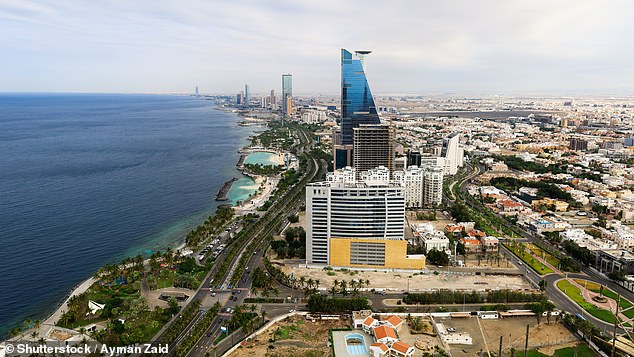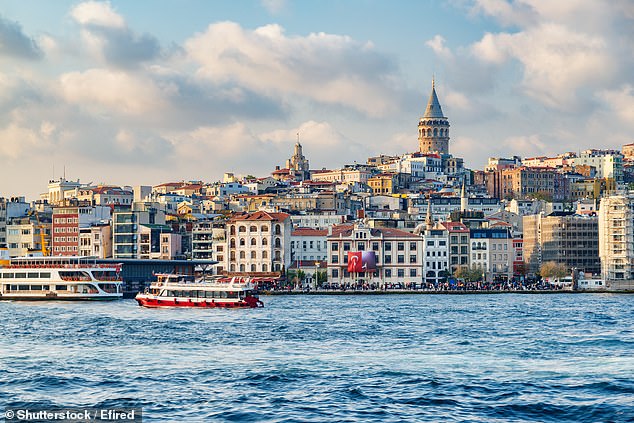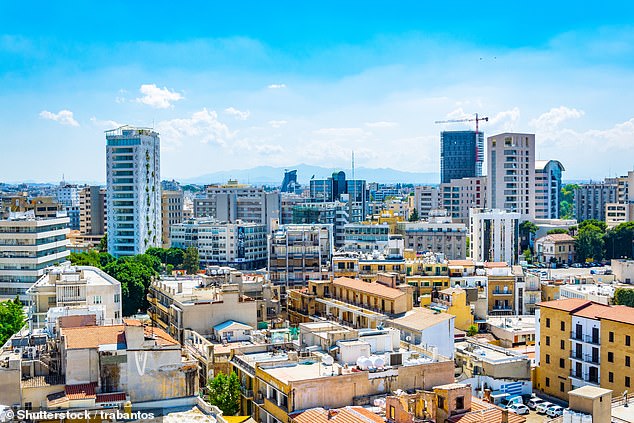The 53 best and worst countries to work as an expat revealed – with a European destination top of the list and the UK and USA outside the top 20
The 53 best and worst countries to work in as an expat have been revealed – with a European destination topping the list and a popular holiday hotspot coming last.
Meanwhile, Great Britain and America fail to reach the top 20.
The results come from a survey by the Swiss-based expat guide InterNationswhich asked foreign workers around the world to rate their local labor market, salary security and work-life balance.
Read on for the full results and let us know where you’d most like to move to in the comments section.
The best countries to work as an expat
Denmark
Denmark tops the list, with one Australian expat telling InterNations: ‘Work-life balance is great and five to six weeks’ holiday are the standard.’
The 53 best and worst countries to work as an expat have been revealed, with Denmark topping the list. Above you see the country’s capital, Copenhagen
More than four in five expats (84 percent) are happy with their work-life balance in Denmark, while 83 percent praise their working hours.
About two-thirds of expats (65 percent) say they can work remotely some of the time, while 82 percent agree that Danish business culture supports flexibility.
However, despite high scores on work-life balance, only 60 percent of expats in Denmark felt they were paid fairly for their work.
Saudi Arabia

A Spanish expat in Saudi Arabia tells InterNations: ‘I like that there are work opportunities for skilled individuals.’ Pictured above is the capital Jeddah
Saudi Arabia occupies second place in the rankings, with a Spanish expat telling InterNations: “I like that there are job opportunities for skilled individuals.”
More than half of expats (55 percent) rate Saudi Arabia’s labor market positively, while 75 percent say their job prospects have improved by moving there.
About six in ten expats (63 percent) say they moved to Saudi Arabia for their careers and 82 percent are happy with the local economy.
However, expats face longer working days, with many working a 47.8-hour week, compared to the global average of 42.5 hours.
Belgium

Expats praise Belgium’s third-ranked job security, the local labor market and career opportunities. Pictured above is the port city of Ghent
Belgium is third on the list, with one Zimbabwean expat telling InterNations: ‘What do I like about Belgium? The infrastructure and services, the quality of education and employment.’
Expats praise the country’s job security, the local labor market and their career opportunities there.
Nearly two-thirds (65 percent) say the move to Belgium has improved their career prospects, while 76 percent say the local business culture supports flexibility.
Expats also have a shorter working week than the global average, with most working 40.8 hours per week, compared to 42.5 hours.
The worst countries to work as an expat
Turkey

Turkey comes last on the list for the third year in a row, with a German expat explaining to InterNations: “The job insecurity, general inflation and economic instability bother me.” Pictured above is Istanbul
Turkey comes last on the list for the third year in a row, with a German expat explaining to InterNations: “The job insecurity, general inflation and economic instability bother me.”
Nearly two in five expats (38 percent) are dissatisfied with their working hours in Turkey, while 64 percent view the economy negatively.
A third of expats (33 percent) are dissatisfied with their job security, while 40 percent view their career prospects negatively.
Egypt

Egypt comes second in the rankings, with over a quarter rating work-life balance as poor. Pictured above is Cairo
Egypt comes in second place, with two in five expats (43 percent) saying they are dissatisfied with their jobs.
More than a quarter (37 percent) believe work-life balance is poor, while only 15 percent view the local economy positively.
InterNations added: ‘Battered by a prevailing currency crisis, global shocks and historically high inflation, Egypt’s economy is expected to recover only slowly.’
Cyprus

Two in five expats (40 percent) in Cyprus rate their personal career prospects negatively, while 41 percent say moving to Cyprus has not improved their career prospects. Pictured above is the capital Nicosia
Cyprus rounds up the bottom three worst places to work as an expat, with one Lebanese expat telling InterNations: ‘Work opportunities for foreigners are rare (especially for students).’
Two in five expats (40 percent) in Cyprus rate their personal career opportunities negatively.
Meanwhile, 41 percent say the move there has not improved their career prospects.
Many expats are also dissatisfied with their salaries in Cyprus; 41 percent say they are not paid fairly for their work.
